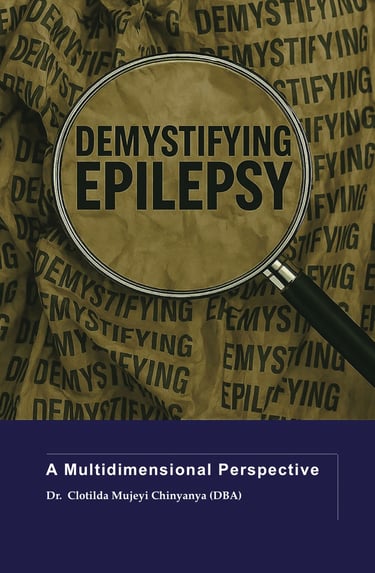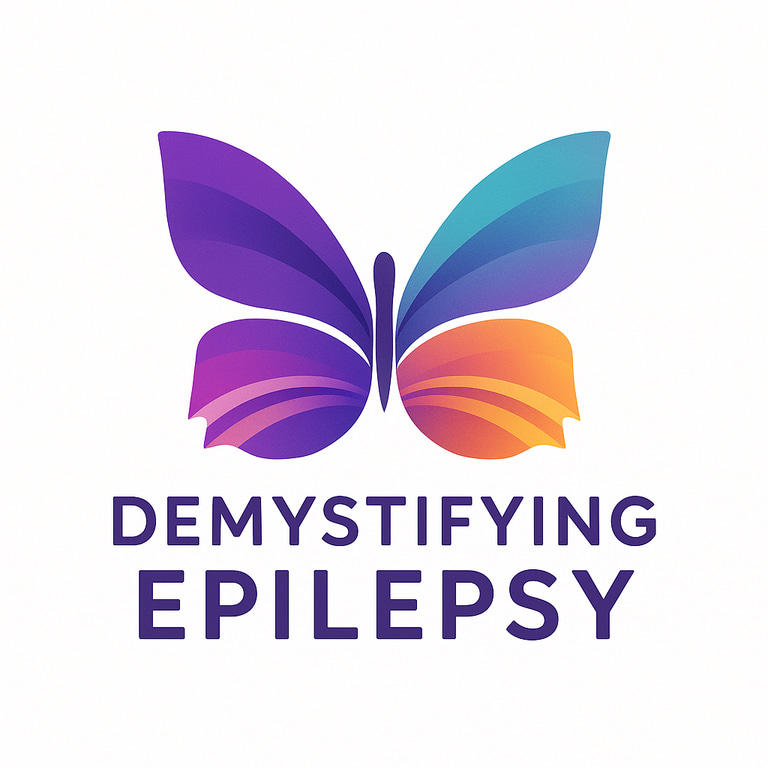Drug Interactions Everyone with Epilepsy Should Know About
Understanding drug interactions is crucial for everyone living with epilepsy. Certain medications, supplements, and even common over-the-counter remedies can affect how anti-seizure medications work, impacting their effectiveness and your safety. This guide breaks down the most important drug interactions to be aware of, empowering you to manage your epilepsy confidently and safely.
Dr. Clotilda Chinyanya
10/17/20254 min read


Living with epilepsy often means taking daily medication to manage seizures. These medications, known as anti-seizure medications (ASMs), are highly effective for many people but they can also interact with other drugs, supplements, and even everyday substances in ways that affect safety and seizure control.
Understanding drug interactions is not about creating fear, but about empowerment. By knowing what to look out for and how to communicate with your healthcare team, you can reduce risks, improve treatment outcomes, and feel more confident in managing your epilepsy.
Why Drug Interactions Matter in Epilepsy
Epilepsy medications work by stabilizing brain activity to prevent seizures. For them to be effective, your body must maintain consistent levels of the drug in your bloodstream. Certain medications, supplements, or lifestyle choices can interfere with how your body absorbs, metabolizes, or eliminates seizure medicines.
If drug levels drop too low, seizures may break through.
If drug levels rise too high, side effects such as dizziness, fatigue, or toxicity may occur.
This balance is delicate. Even common over-the-counter remedies or herbal supplements can cause unexpected changes. That’s why being proactive about drug interactions is such an important part of epilepsy care.
Common Drug Categories That Interact with Epilepsy Medications
Not every interaction is dangerous, but some are significant enough to impact seizure control or overall health. Below are key categories to watch out for:
1. Antibiotics and Antifungals
Some antibiotics and antifungal medications can interfere with how ASMs are metabolized. For example, erythromycin and clarithromycin (antibiotics) or fluconazole (an antifungal) may raise ASM levels, increasing side effects. On the other hand, rifampin (another antibiotic) can lower ASM levels, reducing their effectiveness.
Tip: Always mention your epilepsy medications to your prescribing doctor if you’re given antibiotics or antifungals, even for short-term use.
2. Antidepressants and Anti-Anxiety Medications
Many people with epilepsy also manage depression or anxiety, which makes it important to choose medications carefully. Some antidepressants, especially in higher doses, can lower seizure thresholds and increase risk. Others may alter ASM levels.
The good news is that many antidepressants are considered safe when prescribed thoughtfully. The key is coordination between your neurologist and mental health provider.
3. Hormonal Treatments (Birth Control Pills, Hormone Therapy)
This is one of the most well-known interactions. Certain ASMs like carbamazepine, phenytoin, and topiramate can make hormonal birth control less effective, increasing the risk of unplanned pregnancy. Conversely, hormones can affect the blood levels of some ASMs.
Tip: If you use birth control, ask your doctor about non-hormonal methods or adjusted hormone options to avoid reduced effectiveness.
4. Painkillers
Opioids: Combining opioids with seizure medications may cause sedation or respiratory depression.
NSAIDs (ibuprofen, naproxen): Generally safe, but in high doses, they may increase side effect risks depending on the ASM.
Acetaminophen (Tylenol): Usually safe, but chronic use may strain the liver, especially when combined with certain ASMs.
Tip: Stick to recommended doses and check with your doctor before long-term use of any pain medication.
5. Over-the-Counter Remedies (Cold, Allergy, and Sleep Medications)
Some common OTC products contain ingredients that may trigger seizures or interact with ASMs:
Antihistamines: Can cause drowsiness and interact with seizure drugs.
Decongestants (pseudoephedrine, phenylephrine): May lower seizure threshold in sensitive individuals.
Sleep aids: Can intensify drowsiness and other side effects of ASMs.
Tip: Read labels carefully and consult your pharmacist before taking new OTC medications.
Lifestyle & Non-Prescription Interactions
Not all interactions come from prescriptions. Everyday habits and supplements can also play a role.
Alcohol
Alcohol not only interacts with seizure medications but can also directly trigger seizures. Even small amounts may increase drowsiness, coordination problems, or liver strain when combined with ASMs.
Herbal Supplements and CBD
St. John’s Wort: Can reduce levels of certain seizure medications.
Ginkgo biloba: May lower seizure threshold.
CBD (cannabidiol): Can interact with ASMs like clobazam, raising drug levels and side effect risks. While some people benefit from medical CBD, it should always be used under medical supervision.
Caffeine and Energy Drinks
High doses of caffeine may interfere with sleep (a known seizure trigger) and sometimes affect medication effectiveness.
Strategies to Prevent Dangerous Interactions
Managing epilepsy safely means staying informed and creating simple systems that support your health. Here are practical steps:
Keep a full medication list – Include prescription meds, over-the-counter remedies, vitamins, and supplements. Share this with every doctor and pharmacist.
Use one pharmacy if possible – This allows pharmacists to check for interactions more easily.
Set reminders – Phone alarms, apps, or pillboxes help you avoid missed doses, which can mimic “interactions” by lowering drug levels.
Don’t start or stop medications on your own – Always consult your doctor before making changes.
Monitor side effects – If you feel unusual drowsiness, dizziness, nausea, or breakthrough seizures, report it immediately.
Talking with Your Healthcare Team
Open communication is the best defense against harmful drug interactions. When starting any new medication, ask:
Could this interact with my epilepsy medication?
Will I need a dose adjustment?
Should I schedule blood level checks?
What symptoms should I watch for?
Remember, even supplements, teas, or “natural” remedies should be disclosed. Natural does not always mean safe.
Conclusion
Drug interactions in epilepsy may sound intimidating, but with awareness and communication, they are manageable. Knowing the risks, asking questions, and keeping your care team informed can help you stay safe and in control.
By staying proactive, you’re not just protecting your seizure control, you’re protecting your overall health and independence.
Takeaway: Always double-check before starting new medications or supplements, keep your healthcare providers updated, and remember you don’t have to navigate this alone.
🔗 For more information and trusted resources, visit:


